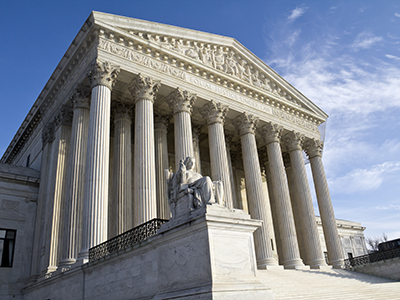Arbitration agreements are a powerful tool in resolving employment actions. As we noted last year, the U.S. Supreme Court ruled in a landmark case that employers can use class and collective action waivers in mandatory arbitration agreements. The U.S. Supreme Court’s 5-4 decision in Epic Systems Corp. v. Lewis, No. 160285 (U.S. May 21, 2018), was authored by Justice Gorsuch, and settled the longstanding dispute over whether arbitration agreements containing class waivers are enforceable under the Federal Arbitration Act (FAA) despite the provisions of Section 7 of the National Labor Relations Act (the Act).
On August 14, 2019, the National Labor Relations Board (NLRB) issued Cordúa Restaurants, Inc., 368 NLRB No. 43 (2019), in which the NLRB sided with employers on two key arbitration questions following the Epic decision. First, the NLRB found that an employer that is sued in a class or collective action can update its existing mandatory arbitration agreement to include a class or collective action waiver, barring workers from opting in to the pending litigation. What’s more, the NLRB found that employers can warn workers that failure to sign the updated arbitration agreement will result in termination.
Employers can update an existing mandatory arbitration agreement to include a class or collective action waiver, even after workers have opted in to the collective action:
The NLRB first addressed the issue of “whether the Act prohibits employers from promulgating [mandatory arbitration] agreements in response to employees opting in to a collective action.” In Cordúa Restaurants, Inc., Cordúa Restaurants had an existing mandatory arbitration agreement that required employees to waive their “right to file, participate or proceed in class or collective actions (including a Fair Labor Standards Act (‘FLSA’) collective action) in any civil court or arbitration proceeding,” but did not expressly prohibit opting in to collective actions. Seven employees filed a collective action in the United States District Court for the Southern District of Texas alleging violations of the FLSA and the Texas Minimum Wage Act. After thirteen employees opted in to the collective action, Cordúa Restaurants updated their existing mandatory arbitration agreement to expressly require employees to agree not to opt in to collective actions. Although the NLRB, for purposes of the decision, assumed that opting in to a collective action constitutes protected concerted activity under Section 7 of the Act, it still found that promulgating the updated mandatory arbitration agreement in response to the opt-ins did not violate the Act. The Board reasoned that Epic made clear that an agreement requiring that employment-related claims be resolved through individual arbitration, instead of class or collective action, does not restrict Section 7 rights in any way.
Employers can warn workers that failure to sign the updated arbitration agreement will result in termination:
The NLRB next tackled the issue of “whether the Act prohibits employers from threatening to discharge an employee who refuses to sign a mandatory arbitration agreement.” After updating the mandatory arbitration agreement to include the above provision against opting in to collective actions, Cordúa Restaurants needed to distribute and execute these updated agreements. During a pre-shift meeting, an assistant manager distributed the updated agreement to employees and explained that employees would be removed from the schedule if they declined to sign it. After a couple employees objected to signing the updated agreement, the assistant manager stated that he “wouldn’t bite the hand that feeds [him]” and that he would instead “go ahead and sign it.” The NLRB reasoned that because Epic permits employers to condition employment on employees entering into an arbitration agreement that contains a class or collective action waiver, the assistant manager did not unlawfully threaten the employees.
Dissent:
The majority opinion was authored by Chairman John F. Ring, Member Marvin E. Kaplan, and Member William J. Emanuel. Member Lauren McFerran authored a separate dissent, which disagreed with the majority on both issues and found that, “[t]he record here establishes that [Cordúa Restaurants] violated Section 8(a)(1) [of the Act] by imposing the revised arbitration agreement on employees, in response to their protected concerted activity and by threatening employees for protesting the revised agreement.” Member McFerran reasoned that although Epic blessed the use of mandatory arbitration agreements with class or collective action waivers, promulgating a lawful rule or policy in response to protected concerted activity is prohibited under Board law. Lastly, Member McFerran found that the employees exercised their Section 7 rights by protesting the updated agreement and the assistant manager unlawfully threatened them.
Takeaways:
In its news release, the NLRB recognized that Cordúa Restaurants, Inc. is its first decision concerning the lawfulness of employer conduct surrounding mandatory arbitration agreements since Epic. It remains to be seen how state or district courts analyze a fact pattern such as this one, but this is a very encouraging development for employers if this is a sign of what’s to come from the NLRB. The decision strengthens employers’ power to effectuate mandatory arbitration agreements—now before and during pending litigation.












